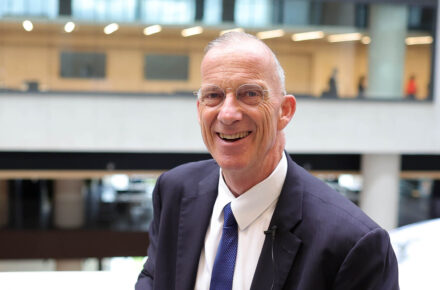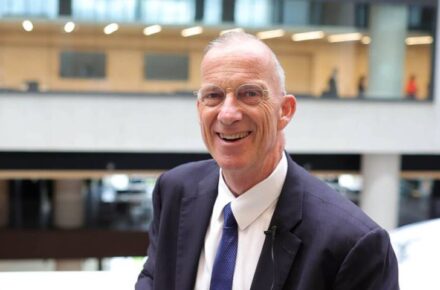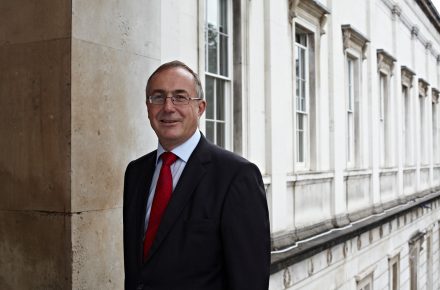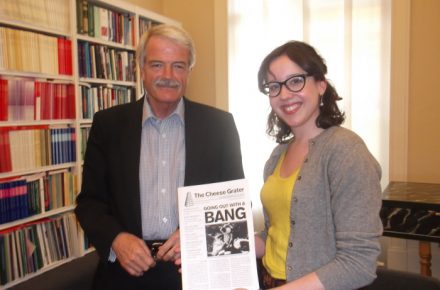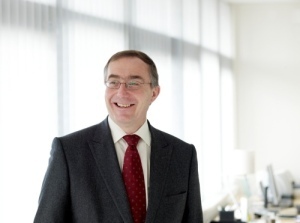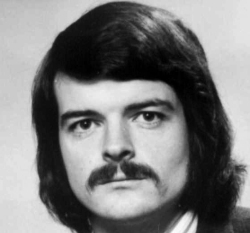In February 2020, Sophia Robinson from The Cheese Grater Magazine interviewed Dr Michael Spence, UCL’s new Provost. Among other things, they discussed tuition fees, UCL’s mental health services, and LGBTQ+ rights on campus. Sophia also questioned Dr Spence on his opinions on freedom of speech – some of which he has previously come under fire for.
S: I want to talk about the increased intake of students. There’s been a significant increase in students from 2019-20 to 2020-21. And my understanding is that the previous Provost was quite interested in continuing to increase the intake of students. Is this something that you’re interested in maintaining, as especially with the construction of UCL East which would allow UCL to take in more students?
M: So I think you’ve got to distinguish between student numbers this year, which are a result in part of the issues that there were with admissions and A Levels during the pandemic, and the sort of long term growth trajectory. In October, we’re going to be starting a conversation with the University as a whole about our strategy over the period 2022-27. One of the topics is going to be size and shape of the university and just how big the university should get – what percentage of students should be international, what percentage should be domestic, what percentage should be postgraduate, what percentage undergraduate. Because I think many British universities have just grown organically as a result of revenue pressures and you really need to think about how big is too big and what the right mix of students needs to be.
S: And I think that there is some discourse going around about whether increase of international students is happening and what the motivation behind that is. I think it’s not entirely unreasonable to interpret that as an attempt to increase revenue, because international student fees are higher. So is that a motivation at UCL or not really at all?
M: We don’t have a big endowment, so we are a university which is in large part funded by student fees, that’s true. But I believe in international education, and I think it is a hugely important opportunity for our domestic students to be studying with people from 140 countries around the world. I think it’s great for Britain to have ambassadors all over the world who have been to university in the UK. One in four heads of states internationally were educated in the UK – an extraordinary contribution that British Universities make to the world. And I also think that one of the most important graduate attributes going forward is going to be cultural competence. And what better way than to practice that in classrooms with people from all over the world. So I really believe in international education, but obviously in any conversation about student, about size and shape, there is a revenue dimension as well as a pedagogical dimension.
S: So, speaking of money and fees, […] what is your opinion on the call for tuition fee refunds and is this something that you are planning to engage with going forward?
M: I understand why students feel that they have not gotten their money’s worth, because they’ve paid their £9,000 pounds. But they haven’t had an on-campus experience and I completely understand that. What lots of students don’t know is that keeping university teaching and research, but particularly teaching, going this year has cost us an extra £90million. And so they’ve got a more heavily subsidised education than they would normally get this year. So in line with government advice, we are not talking about giving student fee rebates or reducing student fees. But I can understand why students feel that they haven’t gotten what they would normally get for £9k.
S: I also wanted to touch on the UCL brand. I have heard a rumour, and you can confirm, deny, or say nothing about it, it’s up to you. But I heard a rumour that you have some thoughts on the ‘sub-brands’ such as the Bartlett school and the Slade school and on abolishing those names and having it all under the UCL name umbrella. Is that the case?
M: [laughs] No, that’s not the case. I think that UCL is the world’s great unknown university. UCL is a top 10 institution and UCL should trip off people’s tongues just as quickly as Harvard or Oxford. That isn’t the case at the moment and I think part of that has to do with the fact that we haven’t been as good at promoting that brand as we ought to have been. And we need to do some work in that space. But some of our sub brands, you know, like Slade and Bartlett, they’re globally recognised brands themselves and we certainly wouldn’t want to kill those.
S: Yes, of course. That is my opinion as well. I think people, they hear Slade, they hear Bartlett, and that means something. And also people with Slade and Bartlett on their diplomas might have a bit of an issue if you get rid of that.
M: Exactly.
S: So you have received a list of top priorities from the Student’s Union, and my understanding is that there was discussion about mental health funding. What are your views on mental health funding at UCL: does it need to be increased, and more generally with regards to mental health services for students, what needs to be changed, improved, abolished? Or do you think it’s functional as it is right now?
M: Since joining UCL, I have been impressed by the mental health support that has been made available to students during the pandemic. The interesting question going forward is what the level and modalities of the provision of mental health support ought to be, and what we can do, in particular, in partnership with the NHS. I think sometimes issues arise in the integration of university mental health provision and the provision that’s available in the health system more generally. And it’s really important that there’s a kind of tighter knit connection there and it’s something I’m very keen to explore.
S: This is a discussion that has been had, not just in terms of mental health, but disability support in general at UCL. I don’t know if you’ve been made aware or have had a chance to read it, but last year there was a report by the Disabled Students Network about disabled students’ experiences at UCL. It’s incredibly poignant and it really does shine a light on certain issues.
M: So I’ve seen that, and have also had the opportunity to be briefed by a student who lives with a disability about their experience at UCL. They’re a postgraduate student and interestingly, they were saying that they think UCL is sector-leading in its provision for disabled students, but also told just terrible stories about their experience at UCL. They knew partly from their own experiences elsewhere and partly from talking to other students that their experience would have been even worse at other British universities. So I think we have a way to go in the disability space and I’m very glad that after the Eugenics Inquiry, the disability group was set up and I think it needs to be an area of focus.
S: I want to move on to slightly more, I suppose, controversial, topics. We are the Cheese Grater after all. So there has been some discourse around your lack of support for the same-sex marriage referendum in Australia. And I believe that in the UCL podcast earlier this year, you expressed your opinion that as Provost, it’s not your place to advocate in public conversation or join the debate on political issues. But I’m sure you can understand that for LGBTQ+ members of the community, there is some concern as to whether their needs are a priority and whether the leadership at the university believes in their needs and wants to advocate for supporting them and their protection in this space. Do you prioritise making UCL a protected community for LGBTQ+ students?
M: Yeah, very much so. What I’ve always said about that is that while I don’t think that the university as a university should be a participant in the public conversations about controversial issues because the university should be a forum for our staff and students and others to have those conversations, nevertheless, the university does have to adopt positions in relation to the conduct of its own business. Clearly, that includes making sure that the university is a place where everyone can be their whole selves, and in particular where LGBTQI+ staff are comfortable. In Sydney, I was proud of the work we did on our Ally Network and of the work we did with the Mardi Gras on the history of the Mardi Gras, and our participation in that activity and the work that we did across a whole range of issues in the LGBTQI+ area. But that was us as a university. That’s different to us participating as an institution in a conversation where some of our staff and students were participating in the public conversation on one side of the debate, and other staff and students were participating in the public conversation on the other side of the debate. That seems to me to be what a healthy university community should expect. And the university itself should be able to be a place that provides a forum for that debate.
S: I think that one of the nuances of this discussion and issue in general is that people believe that LGBTQ+ rights, and that includes the ability to get married, are human rights. And so I think that if that’s the perspective that you take, then surely it’s in the interest of the university to stand firmly in support of human rights? And a failure to do so may minimise the issue or show the university as not taking equality as a priority. Is that something you feel might be the case?
M: One of our great founders, Jeremy Bentham, said that the notion of human rights is ‘nonsense [upon] stilts’. And while I don’t think that human rights are ‘nonsense on stilts’, the identification and scope of human rights, and how human rights interact is an important matter of public debate. It is something about which people within a university community hold different opinions, and ought to be able to express their different opinions in debate. That doesn’t mean that Sydney was not a place that worked hard to make sure that LQBTQI+ staff and students felt safe and protected. We did a lot more in this space in some ways than UCL and Purple Day was a big day, a celebration across the campus. We were very active in the Mardi Gras festival that just took place in the park outside our campus in Sydney, which is a big gay capital internationally. But there is a point of principle here which is that the university ought to be open to minority moral opinions, as well as to majority moral opinions. And so our students, for example, who took a conservative Islamic position in relation to the meaning of marriage as a moral concept needed to be free to express their opinions as much as the students who took a majoritarian position.
S: Speaking of human rights, one of the human rights protected under the Human Rights Act 1998 here in the UK is the right to freedom of expression. I think that you have spoken about this as an important issue, and said that UCL is ‘deeply committed’ to freedom of expression. In your article in The Times you said that in a healthy university, academics and students should be fighting for causes they think are right, and where relevant, debunking ideas they believe are wrong. I really do agree that debate at University is an important thing. However, then there was the controversy regarding your radio interview, and the fact that you said if a Holocaust denier was invited to speak, you wouldn’t prohibit them from speaking. And I understand that in terms of – you’re a legal scholar, I’m not, so please correct me if I’m wrong – but my understanding is that if someone is invited to speak, it is not lawful to stop them from speaking unless that speech somehow infringes on other human rights. But, having read the EHRC guide on freedom of expression in Higher Education Institutions, the EHRC say that, whilst if someone is invited they are allowed to speak, the right to be invited isn’t extended necessarily in the same way. And then you did clarify in The Telegraph that you don’t think holocaust denial should be lawful.
M: The Holocaust denier thing was a bit of a red herring. It was a bit of a trick question. I come from a jurisdiction where it is just inconceivable that anybody would ever invite a Holocaust denier to campus, and I hope that’s also true at UCL. The trick question was that I had said that if an academic asked someone onto campus to speak, and their speech was lawful and was not going to give rise to public order problems, we would let them speak. And the interviewer said well Holocaust denial is not unlawful in the UK, so would you have them speak? And I said our commitment to free speech is very deep. In fact, Holocaust denial is usually unlawful in the UK as inciting racial hatred. So it was a bit of a red herring. What I do think and I agree with the EHRC on, is that nobody has a right to be invited onto campus, so nobody can complain that I’m not asking x or y to speak. But the question was about the situation where an academic has invited someone to speak, and I don’t think that if an academic invites someone to speak, it is up to me to censor their speech if their speech would be lawful. I’m just not in the business of censorship. And I don’t think the university should be in the business of censorship.
S: I do understand that, of course, and I do think that public debate is important because I think that it helps inform opinions, or change minds, or strengthen conviction. However, there was the case in 2013 at the University of Sydney, when a visit by the Nobel Peace Prize Laureate, the Dalai Lama, was moved off campus. So what happened there?
M: His holiness the Dalai Lama has a marvellous publicity machine. They got a Tibetan student to ask the Dalai Lama to talk about education because Sydney is a big fundraising city for the Dalai Lama. An academic then invited the Dalai Lama onto campus. Another group of academics said to me ‘we can’t have the Dalai Lama on campus, for all sorts of reasons’. I said ‘if an academic invites someone to speak on campus, and their speech is lawful, they have to be heard’. So I said ‘I’m not uninviting the Dalai Lama, we can have the Dalai Lama on campus, he can come to campus and speak’. The academics ended up organising a different version of the event which kept everybody happy. This involved a seminar where people from the Dalai Lama’s office and people from the Chinese side would have conversations about important issues in the life of contemporary Tibet. A retired education academic went to the press and said: ‘The Dalai Lama has been uninvited from campus by the Vice Chancellor’. That was just a lie, a straight-forward falsehood, and the story went global, because everybody loves a story about the Dalai Lama being uninvited. The academics decided that the best outcome was that the Dalai Lama should come and give his talk, and he came and gave his talk about education and life went on. But my participation in that was zilch, nought, zero, except for saying, ‘I’m not going to uninvite him. An academic has invited him to campus’.
S: Just to clarify the whole issue of free speech, because it’s a big discussion, not just in the context of you and UCL, but also with the government releasing their report where there’s a much stricter focus on freedom of expression. I believe the government has also said something to the effect that there would be an opportunity for people to take legal action if they were no-platformed at a university. I think what I would like to get clarification on is that there is certain speech that is permitted, theoretically, by law. For example, to go back to our earlier discussion, Holocaust denial is not explicitly prohibited by law. And Hate Speech is not really a legal concept here, it’s a concept, but I suppose it’s not enshrined in the same way. I think you’ll agree with me when I say law and ethics are not necessarily one and the same, that just because speech is lawful doesn’t mean it’s ethical. So is there a point at which you would be comfortable platforming someone because even though their speech is technically lawful, it is profoundly unethical? Or would you allow that to happen regardless?
M: So there is a couple of things to say here. One is I’m very big on the promotion of the epistemic virtues in universities. I think part of the problem is that we don’t disagree well, we don’t disagree respectfully, and we don’t choose language with the goal of increasing understanding. And I’m very big on making sure that the conversation at universities is as measured and as reasonable as possible. And I think that’s a part of my job in creating a forum for conversation. I can know what speech is lawful and what speech is not lawful. But I can’t decide what speech is ethical and not ethical. I’m a Vice-Chancellor, I’m not the Pope. I think a university needs to be a place where people are able to express minority moral positions. Lots of things that were once regarded as offensive or an anathema are now regarded as mainstream, for example, that people should be able to express their gender in whatever way they want to express their gender. In the example you raised, it’s a clear majority position that people should be able to marry whoever they like whether they identify as a man or a woman. That was once a weird minority position. And if Vice-Chancellors in those days had silenced people on campus whose positions represented a minority, or they regarded these views as unethical, then we might not have had the progress and developments in the same sex marriage conversation that we’ve had.
And so I think it’s really dangerous when university officials get into the territory of deciding what conversation is ethical and not ethical. Now you’ve got to distinguish here between people that I or the university invite to an official university event (where I think we should be careful) and stopping academics and students from inviting people. When I ask people I do need to think whether or not I think their speech is going to be ethical, but I don’t think I can censor speech just on the basis that I think it’s unethical.
S: Just one last thing, you’ve mentioned having a measured discussion, representation on both sides of the aisle, but what’s your opinion when it comes to scientific discussion? For example, climate change. The majority of the scientific community have a consensus that there is man-made climate change and that we are in a climate emergency. There are also people who deny climate change and are allowed to speak openly about that. But that is, first of all, a much smaller percentage of the population, and second of all, is not necessarily scientifically backed. So if we give equal time, literally equal time —
M: I haven’t said anything about equal time.
S: No of course, I just wanted to clarify
M: And I’m very happy for you to clarify. The only question about which I hold a strong opinion is the question about whether or not I should censor people on the basis of the fact that I think their speech is unethical. I don’t think I have the right to do that. But I don’t think anybody has a right to speak at the university, so I don’t think I have to invite loonie climate change deniers or whatever to campus. I’m not the BBC, there aren’t rules about equal airtime to everybody. I think there is a rich conversation that goes on at campus which is conducted by staff and students. My job is occasionally to make sure that it’s civil if it gets out of hand and to make sure that people are free to ask whomever they want to speak.
S: Ok, thank you so much.
M: I’m an umpire, I’m not a participant. The university is not a participant in the conversation, it just provides the playing field and makes sure that people stick by the rules and don’t punch one another at public events, things like that.
S: Thank you so much for speaking with me today.
M: I appreciate the opportunity.


